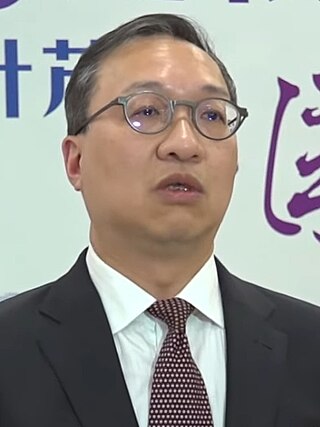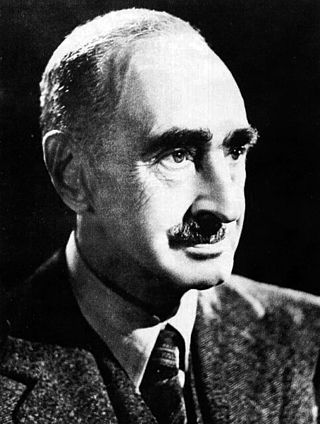
The Government of the Hong Kong Special Administrative Region, commonly known as the Hong Kong Government or HKSAR Government, is the executive authorities of Hong Kong. It was formed on 1 July 1997 in accordance with the Sino-British Joint Declaration of 1983, an international treaty lodged at the United Nations. This government replaced the former British Hong Kong Government (1842–1997). The Chief Executive and the principal officials, nominated by the chief executive, are appointed by the State Council of the People's Republic of China. The Government Secretariat is headed by the Chief Secretary of Hong Kong, who is the most senior principal official of the Government. The Chief Secretary and the other secretaries jointly oversee the administration of Hong Kong, give advice to the Chief Executive as members of the Executive Council, and are accountable for their actions and policies to the Chief Executive and the Legislative Council.

The governor of Hong Kong was the representative of the British Crown in Hong Kong from 1843 to 1997. In this capacity, the governor was president of the Executive Council and commander-in-chief of the British Forces Overseas Hong Kong. The governor's roles were defined in the Hong Kong Letters Patent and Royal Instructions. Upon the end of British rule and the handover of Hong Kong to China in 1997, most of the civil functions of this office went to the chief executive of Hong Kong, and military functions went to the commander of the People's Liberation Army Hong Kong Garrison.

The Legislative Council of the Hong Kong Special Administrative Region (LegCo) is the unicameral legislature of Hong Kong. It sits under China's "one country, two systems" constitutional arrangement, and is the power centre of Hong Kong's hybrid representative democracy, though popular representation in the legislature has diminished significantly in recent years, along with its political diversity.
Article 69 of Hong Kong Basic Law is an article in the Basic Law of Hong Kong. The article sets the term of the Legislative Council of Hong Kong (LegCo).

The Secretary for Education is a principal official in the Hong Kong Government, who heads the Education Bureau (EDB). The current office holder is Christine Choi.

The Chief Secretary for Administration, commonly known as the Chief Secretary of Hong Kong, is the most senior principal official of the Government of the Hong Kong Special Administrative Region. The Chief Secretary is head of the Government Secretariat which oversees the administration of the Region to which all other ministers belong, and is accountable for his or her policies and actions to the Chief Executive and to the Legislative Council. Under Article 53 of the Basic Law, the position is known as "Administrative Secretary". As the second highest ranking public official in Hong Kong, the Chief Secretary acts as Acting Chief Executive when the Chief Executive is absent.

The Financial Secretary is the title held by the Hong Kong government minister who is responsible for all economic and financial matters. The position is among the three most senior Principal Officials of the Government, second only to the Chief Secretary in the order of precedence. Together with other secretaries, the Financial Secretary is accountable to the Legislative Council and the Chief Executive for his actions in supervising the formulation and implementation of financial and economic policies.

The Secretary for Justice is the head of the Hong Kong Department of Justice, the chief legal advisor to the Chief Executive of Hong Kong, and the chief law enforcement officer of the Government of Hong Kong. Before the Transfer of the Sovereignty in 1997, the position was known as the Attorney-General of Hong Kong.

Sir David Robert Ford, was the fifth and the last non-ethnic Chinese Chief Secretary of Hong Kong and Deputy Governor of Hong Kong from 1987 to 1993 and was Hong Kong Commissioner in London from 1980 to 1981 and again from 1994 until 1997.

Sir Andrew Caldecott was a British colonial administrator.

The Secretary for Security is the member of the Government of Hong Kong in charge of the Security Bureau, which is responsible for public safety, security, and immigration matters.
The Secretary for Economic Services was a minister position in the Government of Hong Kong, which is responsible for economic development in Hong Kong. The position was renamed to the Secretary for Economic Development and Labour after nearly thirty years. The new position headed the Economic Development and Labour Bureau and was created together with the introduction of Principal Officials Accountability System on 1 July 2002, by merging the positions with the labour portfolio of Secretary for Education and Manpower. After POAS was introduced all secretaries are members of the Executive Council.

The Secretary for Home and Youth Affairs is the head of the Home and Youth Affairs Bureau of the Government of Hong Kong, which is responsible for local issues, and the provision of community and youth services.

The Secretary for Constitutional and Mainland Affairs is the head of the Constitutional and Mainland Affairs Bureau in Government of Hong Kong, which is responsible for promoting the Basic Law, constitutional affairs, electoral development, and coordinate liaison between the Hong Kong government and the relevant mainland China authorities, as well as to promote various regional cooperation initiatives between Hong Kong and the mainland. Prior to 2007, this post was known as the Secretary for Constitutional Affairs.
Undersecretary is a title for a person who works for and has a lower rank than a secretary. It is used in the executive branch of government, with different meanings in different political systems, and is also used in other organizational settings.
Derek John Claremont Jones was a British and Hong Kong government official and a Senior Fellow of the Trade Policy Research Centre in London. He originally served in the Civil Service and was posted to the Hong Kong Government in 1971. In Hong Kong, he was the first to hold the post of Secretary for Economic Services under the reform in 1973 and had served as Secretary for the Environment, Secretary for Transport and Official Legislative Councillor before he was posted to Brussels serving as Minister for Hong Kong Relations with European Community and Member States in 1982. He subsequently retired from the government in 1986.

Deputy Financial Secretary is a ministerial position in the Government of Hong Kong, deputising the Financial Secretary. The position was created in 2022 after John Lee took office as Chief Executive.
Thomas Megarry, JP was a Hong Kong civil servant and acting Secretary for Chinese Affairs, a key adviser on Chinese politics and culture.
Deputy Chief Secretary for Administration is a ministerial position in the Government of Hong Kong, deputising the Chief Secretary for Administration, the second-highest position in Hong Kong. The position was created in 2022 after John Lee took office as Chief Executive.


















